
Annual Report 2012
Overcoming inequality

Content
Overview VVOB Programmes in 2012 2
Preface 3
Wanted: bright benevolence
VVOB in Flanders 4
Building bridges
•SchoolLinks 5
•Internship programme 6
VVOB in the ‘South’ 7
Overcoming inequality
•Making the leap to nation-wide impact in Cambodia 8
•DR Congo and VVOB, for quality education 10
•Quality education in Ecuador:
from dream to reality 12
•VVOB Kenya links expansion to sustainability 14
•Developing capacity in education in Rwanda 16
Overview VVOB Programmes in 2012
Ecuador
Multi-year programme
zEscuelas Gestoras del
Cambio (Schools as Actors
of Change)
zStrengthening Technical
and Vocational Education
and Training
Suriname
Multi-year programme
zProgress (Programme
More Effective Schools
Suriname)
DR Congo
Multi-year programme
zStrengthening
primary and technical
agricultural education
Zambia
Multi-year programme
zContinuing Professional
Development at college
and school level
Zimbabwe
Multi-year programme
zQuality Education and
Vulnerability
Belgium
Support to activities in
the partner countries and
coordinating organisation
North Operations
zSchoolLinks
zInternship programme
Also partner in Educaid.be,
“Development Debates”, Saved
by the bell, Over the top,...
Kenya
Multi-year programme
zICT Integration in
Education
zHealthy Learning in
primary schools
Rwanda
Multi-year programme
zStrengthening school
management
zStrengthening
Technical and
Vocational Education
and Training
South Africa
Multi-year programme
zImprovement of Further
Education and Training
(FET) Colleges
Vietnam
Multi-year programme
zStrengthening lower
secondary education
z TVET / Career Guidance
Programme
zParticipatory agricultural
extension programme
Cambodia
Multi-year programme
zSEAL (Science and Life
Skills in Teacher Training)
zImAgE (Strengthening
Agricultural Extension)
•Bringing people together in the technical and
vocational sector of South Africa 18
•Primary education in Suriname:
our challenge and inspiration! 20
•Teaching and learning in Vietnam:
a matter for schools and society 22
•Improving quality of teacher training in Zambia 24
•Reducing vulnerability in education in Zimbabwe 26
•Agricultural extension in Cambodia and Vietnam
Handover to the partners 28
Financial report 31
•Balance sheet and P&L statement 32
Annex
Management of VVOB in 2012 34
Acknowledgements 35
................................
.....................................................................................................................
..........................................................................................
..................................................................................................
........................................................................
....................................................................................
....
......................
.........................................................................
................
.................
.............................................
...................................................
..............................................
.......
......
................................................................
...........................................
.........................................................
.............................................................................
.........................................................................................

Preface
Wanted: bright benevolence
Power is exercised by groups and institutions. But personally we also
exercise power by whether or not we carelessly follow conventional
ways of thinking. If our benevolence for an ‘evident discourse’ becomes
too large, we risk to blindly follow one’s course.
The focus on results, in monetary terms even expressed as ‘value for
money’, could be such a discourse. VVOB also forces itself to get the
most out of every received euro and demonstrates this with figures.
Within our thematic line of training of teachers and school leaders, for
example, we can state that we currently have partnerships with almost
140 teacher development institutions in 10 countries, directly reaching
over 2,000 teacher trainers per year, and indirectly more than 32,000
teachers and school leaders per year for an average cost of less than
200 euro per teacher or school leader.
However, when optimising quantifiable effectiveness becomes an
obsession, this can conceal that the stimulation of processes can yield
just as valuable results.
We focus on the improvement of (parts of national) education
systems. A Ministry of Education that has improved its strategy around
key themes and is able to realise this strategy by powerful internal
processes makes a guaranteed difference for 100% of the student
population. That is also strong evidence.
An older but still popular thinking is that poverty is primarily a matter
of material scarcity. Money for development should therefore be
converted mainly in investments and in operating funds for local
organisations.
Investing in people, in their capacity development and knowledge
building, is however the condition for a sustainable return of any
investment. This is what happens in the education sector par excel-
lence, this is exactly what VVOB aims for and achieves with its specia-
lised technical assistance.
In 2012, VVOB celebrated its thirtieth birthday. This adulthood brings
along a clear vision on what is essential, cutting through popularising
trends and the illusion of an all-embracing discourse.
•We have an eye for both processes and quantifiable results at
target group level.
•We are strengthening the capacity of people and institutions as a
sustainable investment.
•As specialists we do this in a sector that ultimately determines the
strength of a society: education.
We are counting on it that this will earn us the goodwill of our part-
ners, our employees and donors in the coming years.
Bart Dewaele
Director-General VVOB
3
VVOB Annual Report 2012

Pieter-Jan De Marez
Responsible North Operations VVOB
In 2012 VVOB considers the substance of its North operations. These
are the activities of VVOB in Flanders with the aim of creating a greater
Flemish support for a solidary society. To this date, this section incre-
ased largely organically and was mainly shaped by the SchoolLinks and
the internship programmes. The following pages elaborate on these
two programmes.
In addition, VVOB also has partnerships with higher education colleges,
there is an ad hoc response to questions from other actors on educa-
tion and development, we co-organise ‘Development debates’ and we
develop a lot of communication activities in order to enhance Flemish
public support (websites, social media, newsletters, partnership with
Klasse,...). Through the platform Educaid.be, VVOB helps to share
information on education and development and wants to strengthen
Belgian policy around these themes.
A context analysis and strategic reflection will orient the North opera-
tions of VVOB for the years to come. We want to help build a more
solidary Flemish society. Such a society needs an education in which
teachers and students will gain the necessary knowledge to contribute
to a sustainable world where everyone has equal opportunities. In Flan-
ders, VVOB therefore wants to focus on the quality of education, and
this by embedding the global perspective (and more specifically North-
South) within certain subsectors of Flemish education.
VVOB in Flanders
Building bridges
We do this by making it possible to have a fruitful interaction between
educational actors in Flanders and the South. We support contacts and
cooperation processes between educational institutions in North and
South, and assist them to develop this cooperation process in the best
way. To achieve this ‘bridge function’ in the best way, we will look for
more coordination and integration between what we do in the South
and what we do in Flanders. In this we can realise the most value
compared to what other actors are already doing in Flanders.
Given the objectives, our partners in the South and the needs within
the Flemish education sector, VVOB will focus more explicitly on the
Flemish teacher education and the sector of technical and vocational
education from 2014 on. In the course of 2013 we will reflect on the
concrete implementation.
visits Ecuador
Klasse is a department of the Agency for Education Communication
of the Flemish Ministry of Education and Training. They visited VVOB
Ecuador in 2011. Journalist Elke Broothaerts went to several schools
with the video camera at the ready. In 2012, TV Klasse, Maks! and Klasse
voor leraren published her reports.
Overview: www.vvob.be/vvob/en/klasse-ecuadorsseinkenia
www.klasse.be | www.maks.be

5
VVOB Annual Report 2012
In 2012, VVOB supports twenty school links between primary and
secondary schools in Flanders and in the South. A total of fifty
schools are actively involved, receiving a first, second or third year
of support from the SchoolLinks team. This mix of beginners and
more experienced schools guarantees a fruitful exchange of expe-
riences between the Flemish schools.
Solidarity reshaped
Educating pupils to be global citizens is a wonderful ambition of
schools. Developing a school link makes this global education very
concrete and tangible because it gives a face to the ‘South’. In addition,
the awareness and importance of exchanging experiences between
teachers is growing. This not only makes a partnership more equal, it
also allows implementing solidarity in a different way than through
traditional fundraising initiatives. In this context eight school links make
an explicit link to our programme operations in the South. This way,
these schools are substantively connecting their cooperation with an
education theme of VVOB and developing their activities in function of
this.
On track
In 2012, we have further extended our existing support package for
schools. Next to the financial backing for school link activities, partner
schools receive personalised advice and substantive guidance. And this
is much appreciated. Schools give an average score of 6.24 on a scale
from 1 (strongly disagree) to 7 (strongly agree) on the question whether
VVOB gives them sufficient guidance in the development of the school
link. The trainings in 2012 have an average of 26 participants. They also
receive an average satisfaction score of 6.24 on 7. Moreover, the parti-
cipants indicate in the evaluation form that the training has provided
them with a better understanding of the development of their part-
nership, and that it helps them to tackle the activities more effectively:
both scoring 5.1 on 6.
Mapping the effectiveness of SchoolLinks
In 2012, we actively focused on a more structured monitoring of indivi-
dual school links to be able to make statements about the impact of the
programme over time. In the context of the PULSE study on the effect
of public support activities, HIVA assessed our existing approach of
monitoring and evaluation. Upon their advice we observed and evalu-
ated each school link via a number of criteria (support, communication,
activities, etc.). In doing so we can monitor their strengths and weak-
nesses and it allows us to understand and monitor their evolution. It is,
of course, essential that we see the school links grow towards autono-
mous partnerships.
General focal point
An important development in 2012 was that we are moving in the
direction of a general focal point for all North-South school links. This
means that school links outside the VVOB partner countries can now
also enjoy our support. In autumn we launched a first call for projects
and three proposals were approved. We also encourage more coopera-
tion with actors that directly or indirectly work on North-South school
links. There is a collaboration with Studio Globo in the context of ‘Saved
by the Bell’ and with Djapo within ‘Art-Eco’. At the same time three new
project proposals in which VVOB is a partner were approved by VAIS. It
concerns the ‘My-Machine’ project (1 +1 = 3), the Millennium Musical of
De Belhamel school and ‘De kast van Siwa’ of Djapo.
The step towards a broader focal point is taken effectively, but there is
still much work to be done in 2013 to develop this further in a qualita-
tive way. All steps will be taken to achieve this goal!
The appeal of the project for me personally lies in the
potential that South Africa offers as a lesson topic.
There is so much to see, tell and read about it, which
makes the country already a big source of lesson mate-
rial in itself. It becomes even better, of course, when this
can be shared and exchanged with a teacher from the
country itself. Therefore I think it’s really important that
teachers can meet and talk to each other in real life, to
maintain this kind of exchange. Exchange visits keep
the connection alive, and next to valuable lesson mate-
rials also brings about great social commitment.
Laura Meyvis, English Teacher, Sint-Jozef Institute Essen,
partner school of Hoërskool Waveren, Witzenberg,
South Africa
More info on the SchoolLinks programme:
www.scholenbanden.be/english
SchoolLinks
Towards a general focal point
Some figures regarding the activities within a
school link:
•Half of the Flemish schools implement 5 or more global educa-
tion activities that are aimed at strengthening competences on
global citizenship among students.
•11 school links undertake several activities aimed at capacity
development of the partner school.
•18 schools visit their partner school. In 12 cases it concerns a
visit by the partner school in the South to the Flemish school.

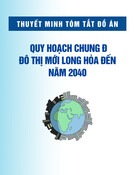
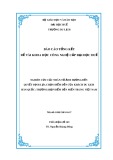
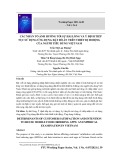
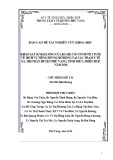
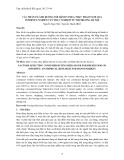
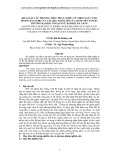

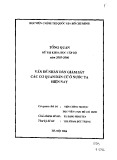













![Bộ Thí Nghiệm Vi Điều Khiển: Nghiên Cứu và Ứng Dụng [A-Z]](https://cdn.tailieu.vn/images/document/thumbnail/2025/20250429/kexauxi8/135x160/10301767836127.jpg)
![Nghiên Cứu TikTok: Tác Động và Hành Vi Giới Trẻ [Mới Nhất]](https://cdn.tailieu.vn/images/document/thumbnail/2025/20250429/kexauxi8/135x160/24371767836128.jpg)


